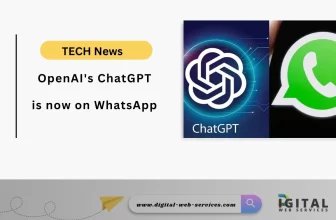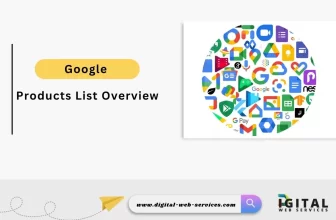
Digitization has completely revolutionized human behavior around the globe. Now every individual owns a smartphone. From finding the best restaurants for dining to getting directions for reaching several venues, people use their mobiles to accomplish every single task. According to a recent survey, 90% of individuals use their phones for finding answers to many questions, including the cure for illness on the web before going to a certified medical practitioner. This data emerges from the need for having a mobile presence if you want your business to survive in this fiercely competitive world. Enrolling in a Full Stack Developer Course equips you with the skills to create robust mobile applications, a priority for many entrepreneurs focusing on app development for their businesses.
However, merely gaining a presence doesn’t bring success to any business. To translate your efforts into a win in this competitive mobile market you need to build a strategy, ensure extensive planning, and do thorough research. You are required to analyze the existing mobile ecosystem with a present or new hybrid mobile app.
Certainly, many native mobile apps offer unrivaled experiences in terms of advanced functionality and aesthetics. But they are costly to maintain and develop. The best and most cost-effective solution for your business is building hybrid mobile apps with mobile app development frameworks.
What is a hybrid mobile app development framework? What are its benefits?
Before moving ahead, you need to understand this term and know what set of benefits it offers to a business.
Hybrid mobile app development frameworks help developers to build mobile applications using various web technologies that include CSS, JavaScript, and HTML. This entire process is also stated as cross-platform development. Easy-to-use interface and features across several operating systems have made hybrid mobile app development frameworks popular in a short span of time. It offers a different set of advantages to the business namely:
- Better UI/UX: Hybrid mobile app development offers a blend of native and web application advantages. It gives users an impeccable and consistent experience across Android and iOS platforms. The lightweight feature loads the content and graphics instantly. The applications flawlessly display the data on different screens with diverse resolutions. The excellent UI experience increases the chances of approval in the iOS app store and Android play stores.
- Extensive market reach: Hybrid mobile apps are the right source to target various platforms with a single solution. These are rewarding yet economical options to reach many mobile users at once using diverse mobile platforms.
- Faster to develop: Hybrid mobile apps are easy as well as fast to develop. It helps many businesses to utilize their existing web development tool kit and eliminate the need for creating an all-new codebase across various mobile platforms.
- Ease of maintenance: These are easy and simple to maintain, unlike native apps where developers are required to build new versions for each platform with the newest update. Hybrid apps are easy to update and remove the requirement for versioning every time.
- Economical: As already told this approach can target multiple platforms without doing numerous coding. A single code base works for several platforms and can be published on various mobile app stores making it cost-effective.
- Available offline: These apps can run uninterruptedly offline and gives users incessant access to the data without any glitches.
- Improved performance: Hybrid application offer speed in performance same as native apps. As it doesn’t depend on the network for running, it displays greater speed on all sorts of devices.
Now you know what sort of advantages hybrid applications offer. Let’s take a look at one of the best frameworks that can be utilized to create these applications hassle-freely.
1. React Native
This framework is one of the most popular in the lot that offers the finest JavaScript library for android app development and iOS app development. The main purpose of this framework is to build native apps for all types of devices and platforms. React Native is a free framework which is developed by Facebook. With this framework, developers can easily develop high-performing apps in a short duration. It assists in building intuitive and rich applications. It utilizes and supports JavaScript which is essential for full-stack development. The unceasingly active community resolves any type of issue at the earliest.
Pros of React Native:
- Multiple ready-to-use components accelerate the process of development.
- Facilitate copying the code base between Android and iOS.
- Simplify hot deployment without saving the changes.
- Easy identification of bugs.
- Ensures steady growth.
- Provides a similar experience as native applications.
Cons of React Native:
- A gap is present in the navigation component that hinders in smooth user experience.
- Hardware areas need a few improvements.
- The process of debugging is tough as apps are developed using JavaScript, C++, Java, etc.
- Apps with multifarious gestures cannot be developed using React Native.
- It is immature in terms of quickness for Android and iOS applications.
2. Xamarin
It is an open-source app development framework developed by Microsoft to build the finest applications using .NET, and C#. Many organizations have already employed Xamarin for developing apps. Businesses can deliver a great experience to their users with this flexible framework. Xamarin works as a construct layer that regulates the communication between shared code with underlying platform code. It helps developers to create a network with components, API, backend, and more. This framework is known for making business mobile apps with a native appearance and feel.
Pros of Xamarin:
- Offers all types of tech help that any tool needs as it is backed by Microsoft.
- Lesser coding is required for the app because more than 70% of codes are reusable between Android and iOS.
- Simple run tests on apps.
- Ensures a high level of performance.
- Able to translate app components across various platforms.
Cons of Xamarin:
- Comes with the pricey tag for the business license.
- Supports a specific amount of technical elements.
- Integration can become very tough when apps are developed using this framework.
- As it is a newer framework, this means fewer resources to manage bugs.
- Complex projects need extra native coding.
3. Ionic
Ionic has gained a lot of popularity in recent times and is also preferred by many developers. The CSS portions of this framework are enough to create the best & native-looking mobile applications. Ionic can be used to its full potential when it is paired with AngularJS. There are numerous features in this framework like Apache Cordova-based application suites and integrated emulators that helps developers to create feature-rich and sturdy native apps.
Pros of Ionic:
- Once developed you can put them on all supported platforms in one go.
- Feature-rich applications can be developed along with AngularJS.
- Quicker to develop and easy to maintain.
- Apps can be developed for both Android and iOS at once.
- Developers don’t require Swift or Java for developing apps.
Cons of Ionic:
- The performance of apps is not good.
- Pairing with AngularJS forms a skill gap in developers.
- In-app navigation is complex.
- Plugins are not stable. There is a high chance of conflict.
- Debugging mobile apps requires a lot of time as it is challenging.
4. Mobile Angular UI
It is an open-source framework that combines AngularJS, HTML5, and Bootstrap. If your developers are familiar with AngularJS and Twitter Bootstrap they can easily learn this framework quickly. With Mobile Angular UI, developers can utilize JavaScript libraries like FastClick.js and Overthrow.js. This framework is best for developing modern mobile and web applications. Its useful components like switches, overlays, scrollable areas, sidebars, etc. can provide your users with the finest app experience.
Pros of mobile Angular UI:
- Fastclick.js and Overthrow.js afford the best user experience.
- It is an open-source framework and is available at zero cost.
- Cool mobile elements like modals, overlays, navbars, switches, and sidebars.
- You can use Ionic elements with this framework components.
Cons of mobile Angular UI:
- Internal dependencies on Bootstrap are likely to cause a lag.
- Applications written in Angular JS are not considered safe.
- Debugging can be tough if any error arises.
5. Native Script
This framework is open-source and uses CSS, JavaScript, Angular, Vue.js, and typescript to build native mobile apps. Native Script is used to develop mobile applications while minimizing the code length and time taken for its creation. It offers effective and great in-built components for developing apps for business. Deploying and writing mobile apps for Android and iOS can be done from a single codebase.
Pros of Native Script:
- Native mobile apps can be created using CSS and AngularJS.
- It has three real-world applications by default.
Cons of Native Script:
- Needs additional plugins.
- The size of this app is larger than Ionic2 and React Native.
6. Alpha Anywhere
This framework is a low code and quick mobile developing app that rapidly build mobile apps which works offline. It can be used for building mobile business applications and cross-platform web. It is one shop for developing desktop apps, web applications, mobile applications, and SaaS applications.
Pros of Alpha Anywhere:
- Data encryption can be done with SSL and HMAC support.
- Provides mobile data security.
- Numerous in-built sample apps for doing cross verification.
- Comprehensive access to the backend data.
Cons of Alpha Anywhere:
- Web app development is not easy as building an app for a desktop.
- The drag and drop feature is absent in this framework.
- There is no tech support for any obstacle that might occur during the app development process.
7. QT
This is a cross-application SDK. This tool is cost-effective for developing apps. It can be easily used by the developers to bring out the best results and provide the finest user experience across a variety of devices. It is a solution that allows developers to connect the gap between online and physical user experience. It enables you to install apps on iOS, Android, and Windows. This tool helps you in connecting with your customers personally outside the key product.
Pros of QT:
- Supports dual-mode networks and IPV6.
- Its additional implementation provides compiler and parser optimization.
- Supports opaque private keys.
- Quick fixation of buggy SSL servers.
Cons of QT:
- Metaobject compiler increases the level of complexity for developing the app.
- Absence of platform support.
- Without a QT compiler, it takes time to start an app. You need to obtain an additional commercial QT version to get this.
8. Firebase
This framework supports iOS, Android, web, and iOSX. Firebase is capable of reducing the time taken for mobile app development. It helps businesses to build and scale their applications. Its infrastructure offers a few free products like cloud messaging, crash support, and analytics.
Pros of Firebase:
- As the Firebase framework is cloud-hosted, it is scalable and flexible in terms of size.
- It gives developers offline access and updates to work towards its responsiveness without the internet.
- Well-documented technical information makes it more accessible for end users.
- Easy integration and instant setup.
Cons of Firebase:
- You cannot put a query for multiple keys as it takes one at a time.
- All the data is held on this framework and limitations are present in its migration.
- Android-centered.
- Lack of on-premise installation.
Final thoughts
Mobile applications have numerous advantages and one of the topmost benefits is working faster and efficiently even offline. Many organizations have taken a major shift from web applications to mobile apps. Hybrid mobile applications are just like any other app that is found in your handsets or other hand-held devices. These apps can be both the best and worst in the market. If you want your developed app to be the finest then you need to choose its framework after deep scrutinization. A framework is a useful tool for building mobile or web applications. But selecting the best app framework out of tons of options in the IT world is very tough to analyze. Before opting for any hybrid mobile app development framework, you need to analyze all the variables like:
- User experience.
- Target audience.
- Features you want to implement.
- Business fundamentals.
The frameworks mentioned in the post are neither numbered according to their preference nor their usage. But they are ruling for developing high-end mobile and web applications. You need to go through each nitty-gritty detail of these frameworks and pick one that suits your needs. These frameworks will surely help you win the hearts of your users.
Digital Web Services (DWS) is a leading IT company specializing in Software Development, Web Application Development, Website Designing, and Digital Marketing. Here are providing all kinds of services and solutions for the digital transformation of any business and website.










